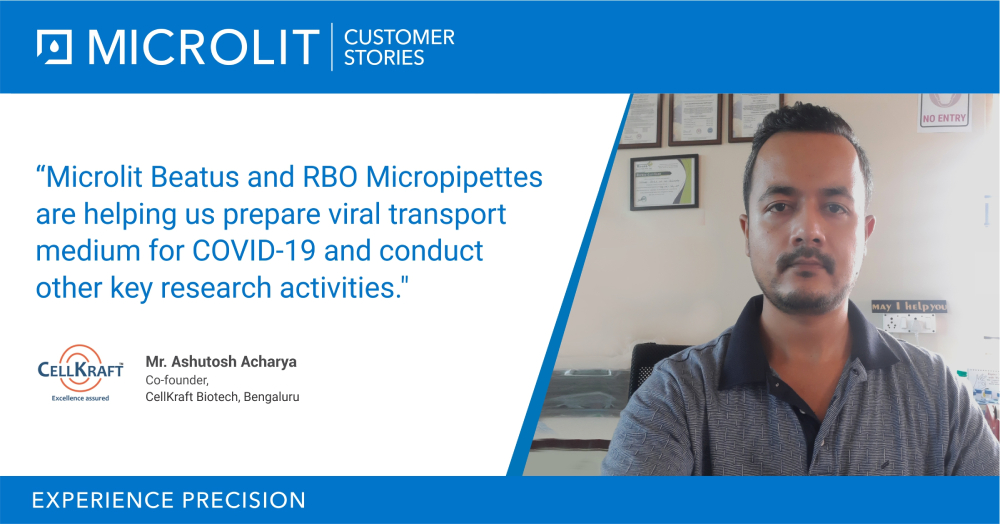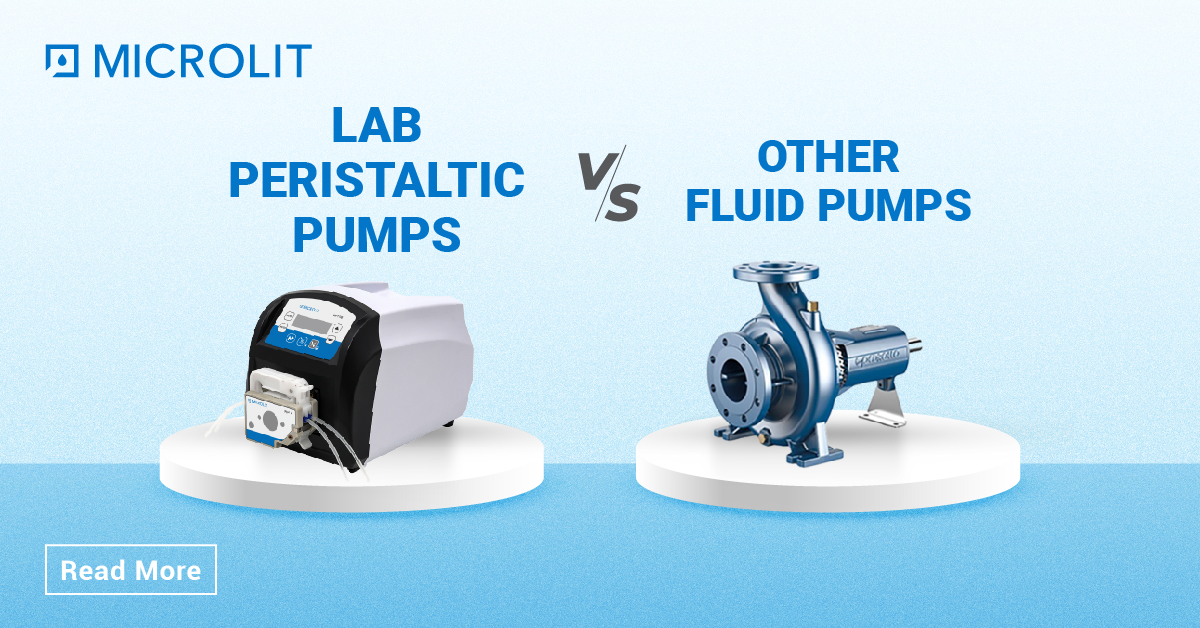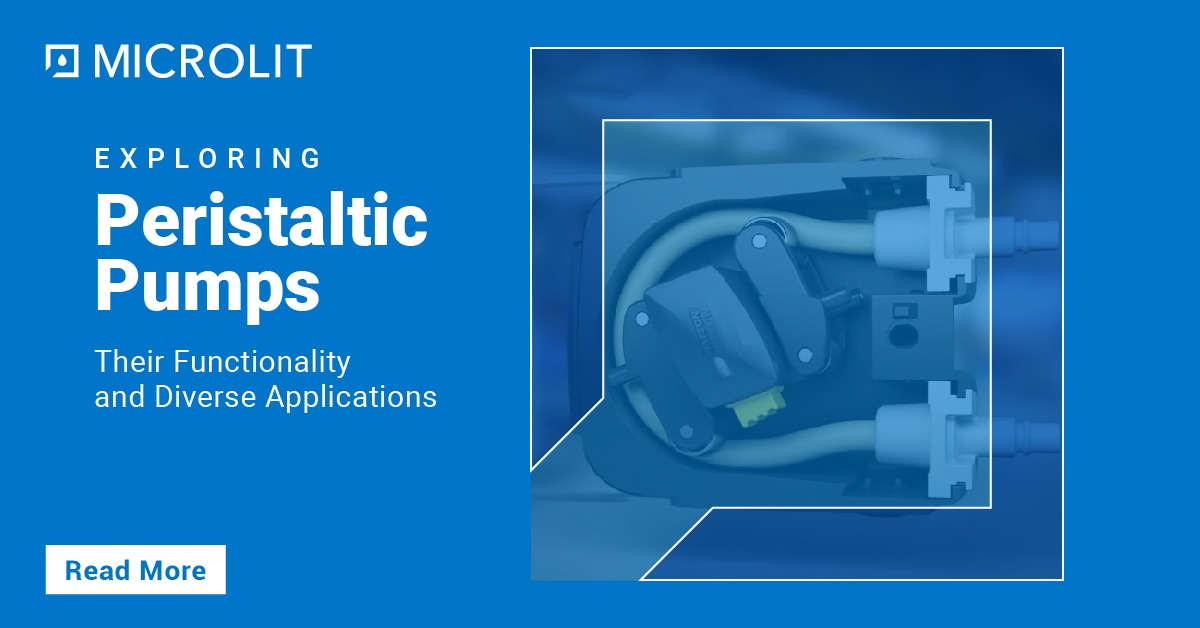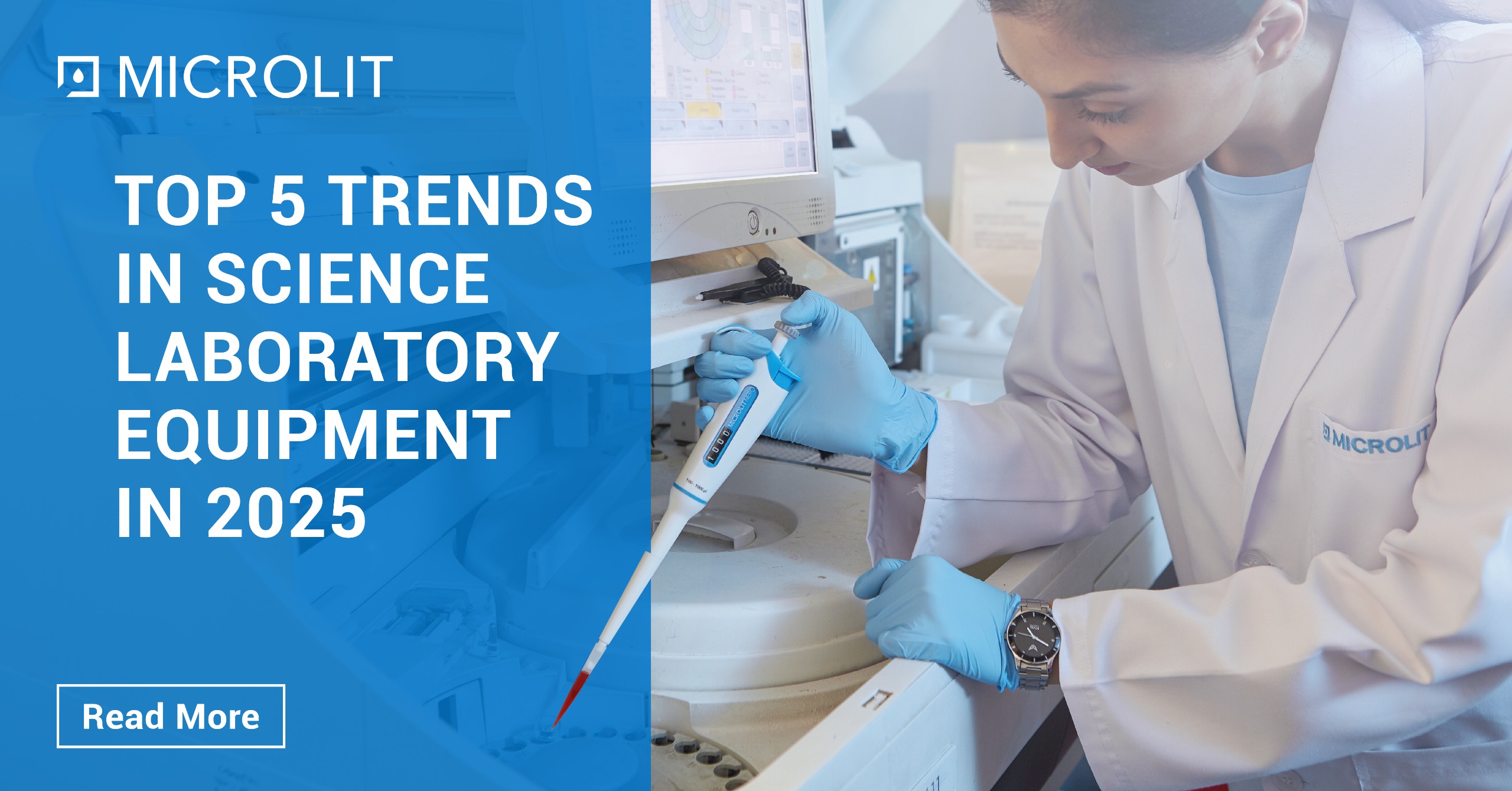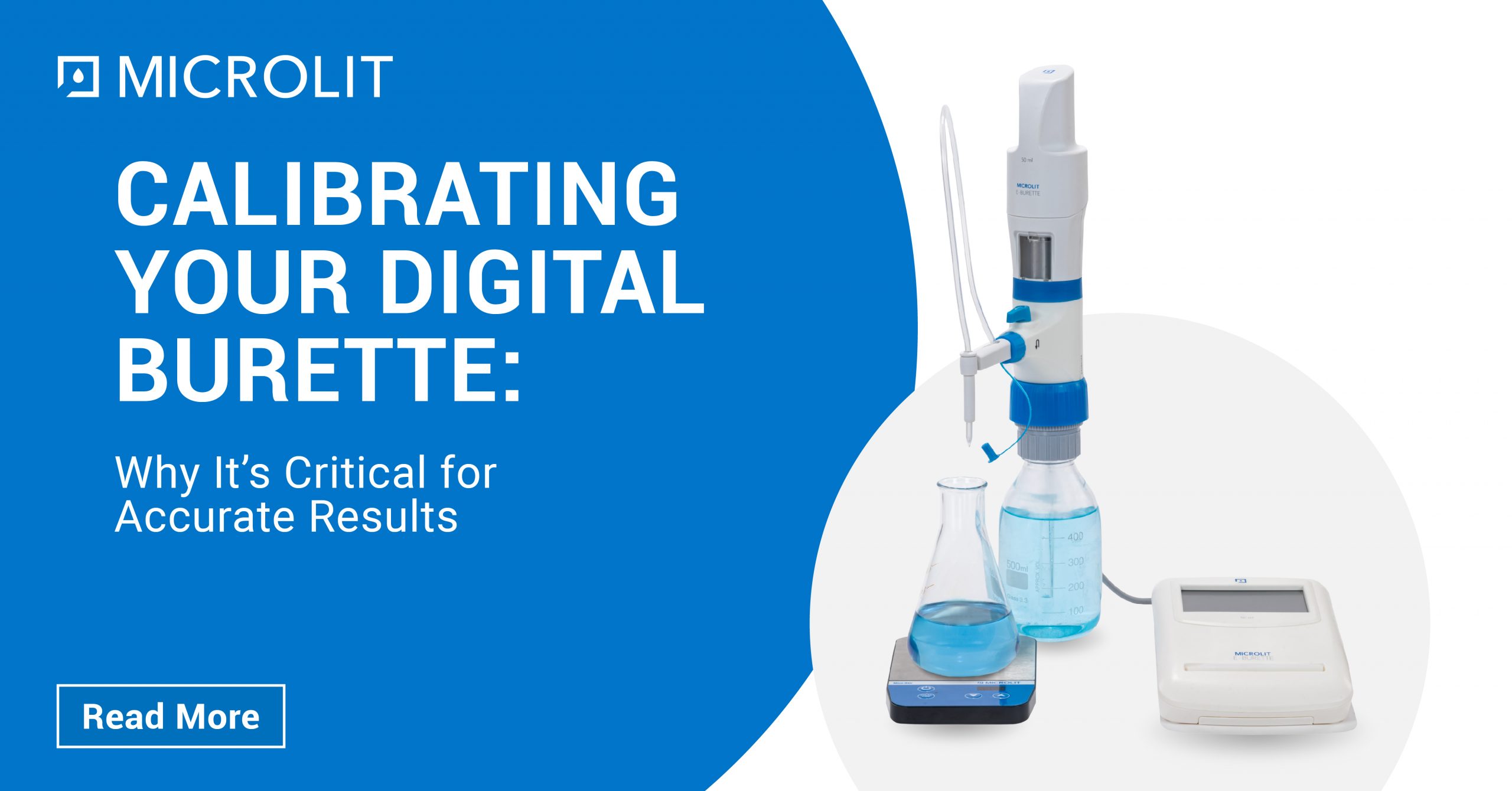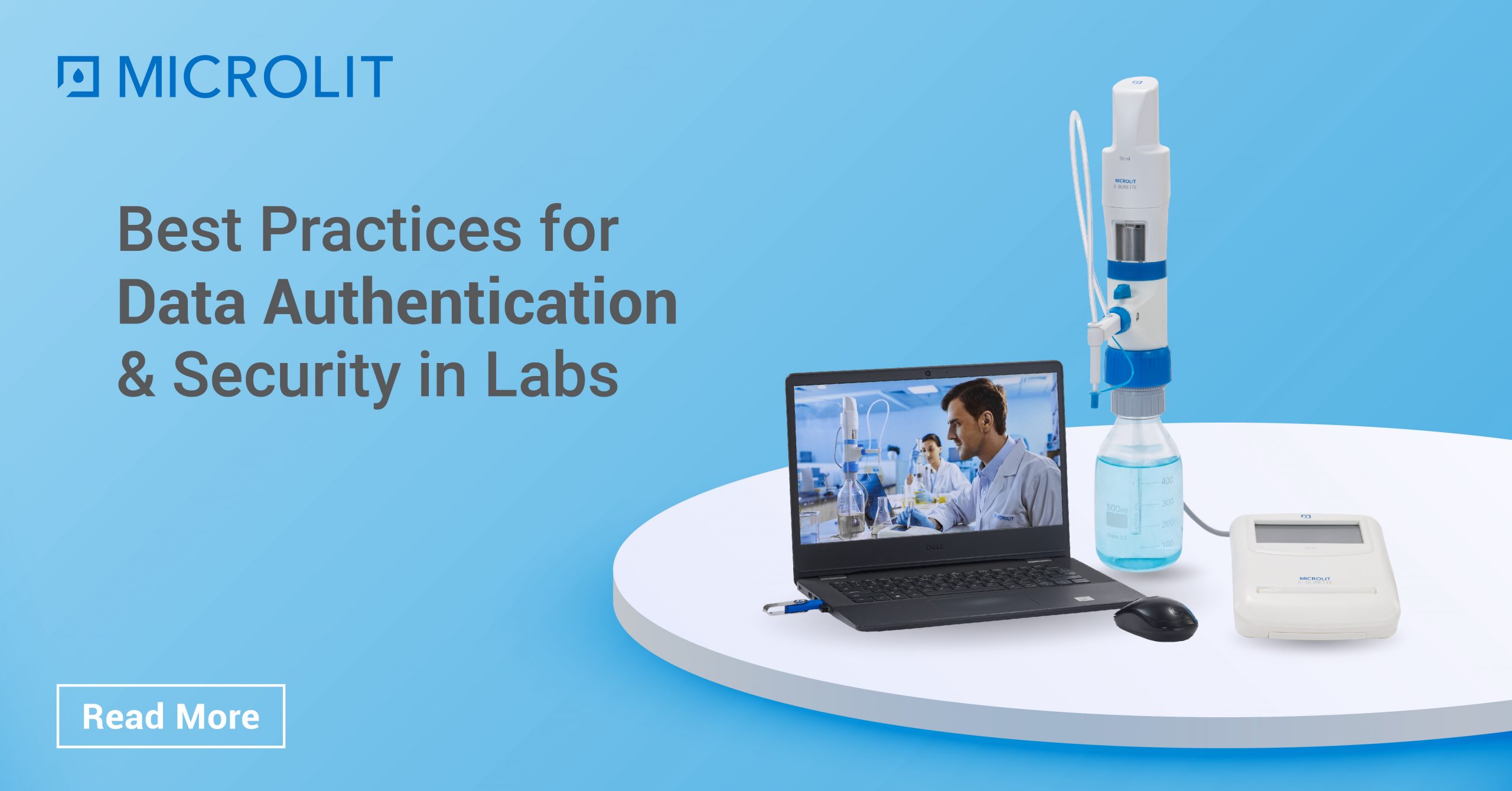About CellKraft Biotech, Bengaluru
Founded on 4th April, 2018, CellKraft Biotech was established with the aim to form a state-of-the-art Stem cell Culture Lab and Advanced In-Vitro Molecular Diagnostics Facility. CellKraft Biotech is a multi-disciplinary contract research organization (CRO) and supports R&D activities in drug screening and assay biology, medicinal chemistry, in vitro and in vivo pharmacology and toxicology. The company’s in-house R&D programs are focused on the development of in vitro 3-D models of human tissue for testing of pharmaceuticals and therapeutic purposes. CellKraft’s diagnostic services include all kinds of flow cytometry based tests.

In Conversation
We were delighted to interview Mr. Ashutosh Acharya, Co-founder, CellKraft Biotech, Bengaluru
Team Microlit: Mr. Acharya, it’s a pleasure to converse with you today. Let us start with a short introduction about yourself and knowing about your role at CellKraft Biotech.
Mr. Acharya: Thank you, Microlit. I am an experienced scientist and have worked in the Biotechnology industry in the past. Upon completing my Master of Science (M.Sc.) in Biotechnology, I gained my Ph.D. around the identification of peptides and their application in anti-cancer research. I am the co-founder of CellKraft Biotech and also the Head of Operations here.
Team Microlit: What are the various research services provided by CellKraft?
Mr. Acharya: So, CellKraft Biotech is a contract research organization. Initially, we were solely into providing services but we have recently forayed into manufacturing of chemicals and buffers. We also provide services in animal cell culture based assays as well as in molecular biology.
Team Microlit: What are some of the common types of research experiments conducted at CellKraft and which are the most common industries catered by CellKraft?
Mr. Acharya: On a normal basis, we work on cell culture, molecular biology based assays, ELISA based assays, to name a few. But given the circumstances of the pandemic, we are conducting research on the viral transport medium for COVID-19; this is an ongoing project.
As for the industries, we cater to Biotechnology universities and research institutes as well as a number of pharmaceutical companies.
Team Microlit: How long have you been associated with Microlit? Which Microlit products do you use?
Mr. Acharya: We started using Microlit products in the year 2019. We are currently using Microlit Micropipettes and Microlit Beatus Bottle Top Dispenser.
Team Microlit: For what purpose do you use Microlit Beatus? Has it enhanced your experience of conducting studies/ experiments?
Mr. Acharya: Starting with the basics, we use the Microlit Beatus for refilling medium bottles; by that I mean we produce mediums in large quantities and then with the help of Microlit Beatus, we transfer them into smaller bottles.
Oh yes, Microlit Beatus has helped us enhance the speed of our experiments and now they are easier to carry out. With the Beatus, autoclaving is not an issue that we used to face earlier. We can directly keep the dispensers inside the cabinet unlike the pump based system where autoclaving the components is a task. I’ve come to realise that dispensers are quite robust and dispensers have proven to be better than the peristaltic pump which is used to perform the same process.
Team Microlit: How often do you use the Microlit Beatus? Which chemicals do you dispense with the Beatus?
Mr Acharya: We dispense buffers and mediums with Microlit Beatus. Buffers are basically saline in nature i.e., they are neither acidic nor basic; so they are generally neutral. We use the 10 ml dispenser which is quite robust and it is used for dispensing the medium into 5000 vials, per day.
Team Microlit: How did you conduct sampling before Microlit RBO? Has the Microlit RBO been beneficial for you and how?
Mr. Acharya: We were using micropipettes earlier as well but of a different brand. We have been using the Microlit RBO for the past 1 year. Microlit RBO has proven to be beneficial for us as when it comes to fine readings for ELISA and microbiology assays, micropipettes with lower volumes are perfect.
Team Microlit: How often do you use Microlit RBO? What samples do you take with the Microlit RBO?
Mr. Acharya: Similar to the reagents used in Microlit Beatus, we sample buffers and mediums with Microlit RBO.
Team Microlit: Are you working on any new studies in which either of the Microlit products are posing to be useful for you? If yes, then which instrument and how?
Mr. Acharya: There are quite a few studies that are ongoing at the moment. We are working on Endotoxin testing, manufacturing of animal cell culture buffers, and like I mentioned earlier, the viral transport medium of COVID-19.
For all the above-mentioned projects, both Microlit Beatus and Microlit RBO have come in handy. The Beatus bottle top dispenser has been of great help as it has made the transfer of mediums quicker and easier.
Team Microlit: How has your overall experience been with the Microlit instruments? Any features that stand out for you?
Mr. Acharya: The experience so far has been really good. What stood out to me was how approachable the team is. Both the products that we are using give us accurate results and I can’t stress enough on how robust the Microlit Beatus is.
Team Microlit: Would you recommend Microlit to your peers and/or other institutes?
Mr. Acharya: Oh yes, definitely.

